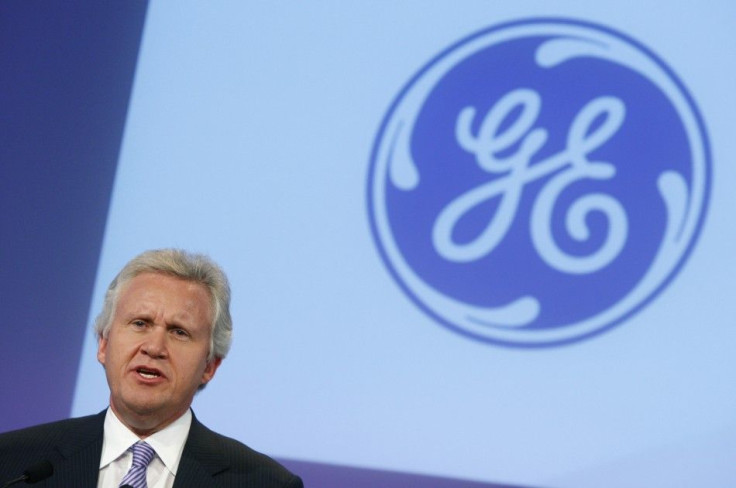General Electric: Barclays Recaps Perennial Bulls Vs. Bears Debate, In Interesting Quarter

In an oddly emotional and schizophrenic note, Barclays PLC (LON:BARC) industrial analysts show they are in two minds about the classic battleground stock of General Electric Company (NYSE:GE), though they ultimately side with those favoring the company.
“Few industrial stocks elicit a more emotional response than GE,” wrote Barclays analysts in a note on Monday. “It is one of the few true battleground stocks left in our universe.”
During most of 2013, the company lagged its industrial rivals, but recently shifted gears after surprisingly good third-quarter earnings revealed better profit margins. Correspondingly, Barclays analysts first noted perceptions of GE stock as “irrelevant,” but later described the company as slowly regaining momentum.
Those betting on the company can cite better profit margins, executive personnel tweaks and the company’s asset shedding portfolio strategy, as boosting General Electric. Bears can point to a historically mixed performance by company execs, a bloated conglomerate format and over-reliance on GE’s financial arm, GE Capital.

A lot hinges on the company’s ability to cut costs, said the analysts. After the company badly missed profit margin estimates in early 2013, Barclays analysts even contemplated “giving up on our forecasts,” they wrote.
“GE allowed itself to get bloated, in our view. It built a global cost base around businesses that were forecasted to be much larger; with slow global growth an increasing reality, GE must now unwind that cost base.”
But shortly after outlining the company’s positive points, the Barclays analyst bemoan the tepid interest in the stock, and the negative sentiment stacked against it.
“Many days we might wish we did not cover this stock: It consumes a ton of research time, and it feels like more often than not our knowledge on the name goes underutilized. Rarely do folks call to dig into GE,” they wrote.
Many bank analysts gave up on deep work investigating General Electric’s finances and fundamentals a long time ago, say the investment professionals.
“GE no longer stands on top of investors’ lists for earnings growth, quality, or end-market exposures. The conglomerate model is definitely out of favor. ... Up until the last two quarters, GE has shown us little in operating excellence, has shown a product portfolio that seems average at best, and has shown weaknesses in businesses that make GE seem out of touch with global changes,” they wrote.
“We believe the GE of today lacks the intensity and culture of winning that it once had,” reads the note.
In the next paragraph, the analysts put the company’s near-term success or failure squarely on management’s shoulders, given external pros and cons which even out.
“Sentiment is negative. Pressure on GE is high. If management executes, this stock should work. In our view, it’s theirs to win to theirs to lose,” they wrote.
The company, which has a market capitalization of $263 billion, operates financial, real estate, health care, energy and manufacturing arms.
GE’s best chance at long-term success, say the analysts, involves shedding its unnecessary and distracting units, like its consumer appliances arm. Then the company can focus purely on global industrial infrastructure, and use its massive scale and multinational presence to beat back smaller rivals.
A General Electric that delivers power generation platforms, oil and gas extraction equipment, aerospace and locomotive parts, and mining equipment, internationally and on a huge scale, is a company likely to succeed in the long term, they said.
In its latest investor update, GE highlighted recent pushes into the Industrial Internet and 3D printing. Those may be examples of the diversified distractions Barclays prefers that GE avoid.
Consumer-oriented businesses, alongside subpar data center and automation work, were cited as activities GE should ideally avoid, in the Barclays note. The company has worked hard recently to wind down its finance business and refocus on its industrial operations.
© Copyright IBTimes 2024. All rights reserved.












